Pastoralists responding to shocks: rethinking resilience
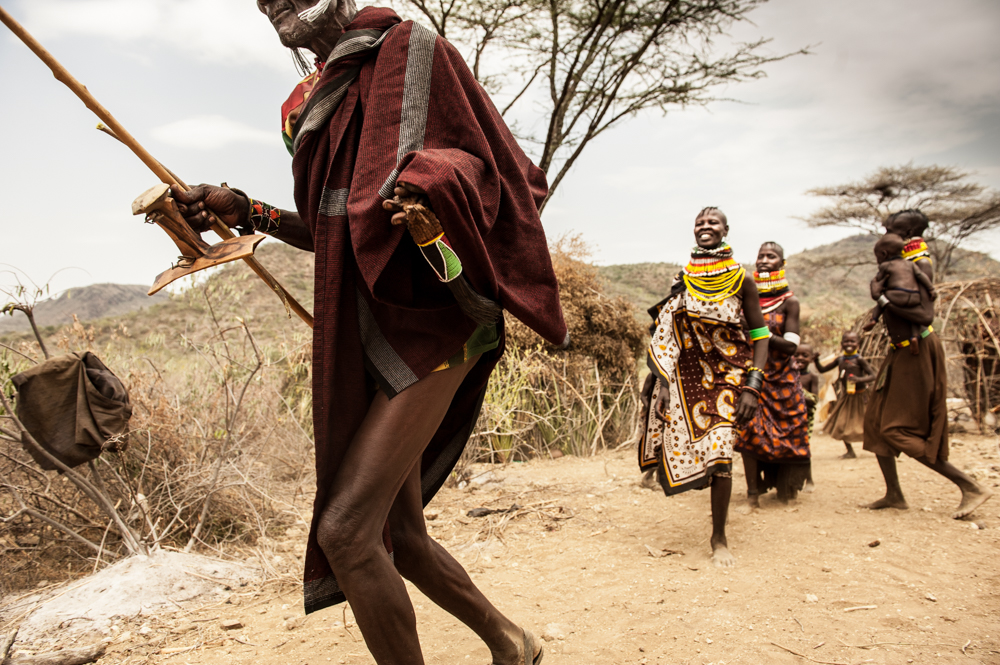
This blog post written by Ian Scoones, principal investigator, ERC Project, was originally published on the PASTRES Pastoralism, Uncertainty, Resilience website. It is the seventh in a series of blog posts that bring together PASTRES work from 2018-2023 around a number of themes. This post discusses the theme of resilience in pastoral systems.
Variability in environmental, climate, market, political, and other conditions affects all pastoralists. Living with and from variability is central to pastoral livelihoods, as was discussed in our Pastoralism Primer and open-access book. But sometimes, major shocks – such as droughts – or more often combinations of shocks and stresses – when droughts combine with conflict, disease outbreaks, or rapid changes in market conditions – disrupt the ability of pastoralists to respond effectively. There is much discussion in development circles about enhancing ‘resilience’ in pastoral areas. But what does this mean?
Multiple meanings
Too often, such resilience programmes take the negative narratives about pastoralism and argue that the best thing to do for pastoralists is to seek alternative livelihoods outside pastoralism, rather than investing in improving the capacities of pastoralists to respond to shocks and stresses. In our view, resilience should not be seen just as ‘bouncing back’ to a previous state, but always adapting and transforming in ways that new conditions are accommodated. Crucially, this requires building on networks and relationships and the social fabric on which pastoralism is built. This is why our focus is on what we call ‘relational resilience’.
Relations of different sorts are central to assuring the reliable flow of goods and services coming from pastoralism. Seeing pastoralism as a ‘critical infrastructure’ as explained by Emery Roe in a PASTRES Working Paper, highlights the parallels with other systems where ‘reliability professionals’ must respond to high levels of variability in inputs and ensure a relatively stable supply of outputs. The skills of reliability professionals – whether in electricity supply systems or pastoral systems – include scanning the wider horizon, testing out scenarios, and responding in real-time to uncertainties while avoiding the dangers of surprise and ignorance.
Such skills are important in anticipating and responding to droughts, market shocks, conflicts, and so on in pastoral areas, and very often, there are particular individuals in communities that people turn to. Such individuals, though, never work alone. They are connected to others who have different knowledge, complementary skills, sources of finance, and technology that can help respond to a disaster, as we found out when looking at responses to diseases in northern Kenya. Such reliability networks, therefore, work continuously to avert disasters in the face of unfolding, uncertain situations.
Building resilience from below
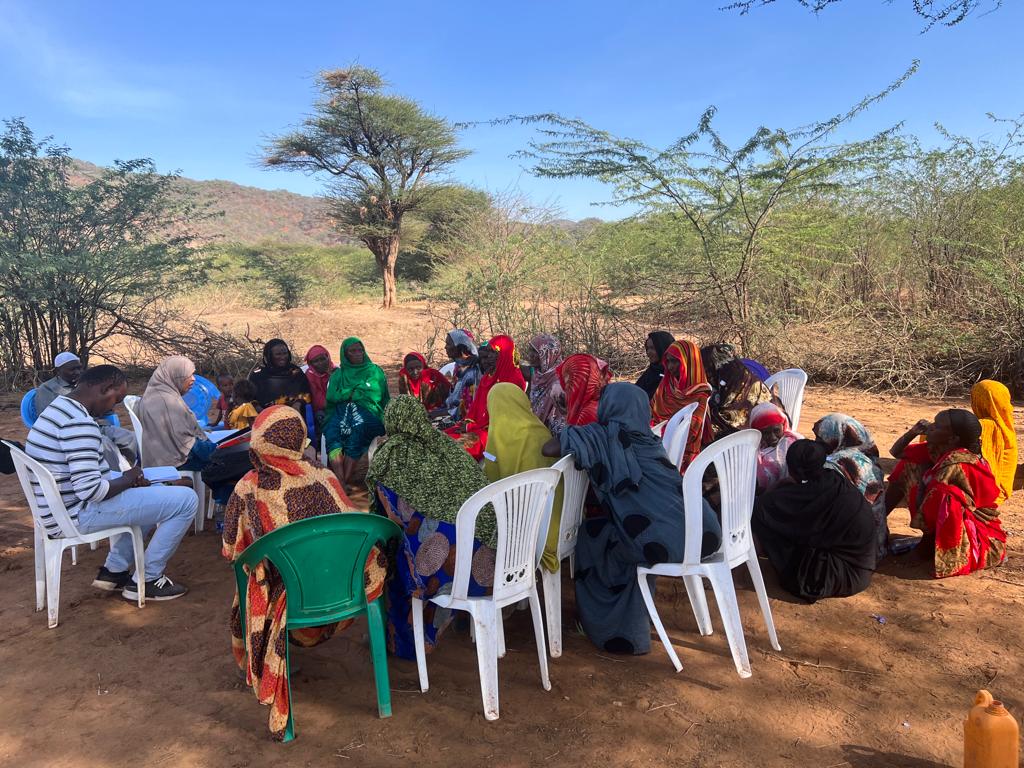
Such an approach to building resilience and the capabilities for generating reliability are seen across pastoral settings, as we found in northern Kenya. Building such approaches from below is very different from the standard approaches to drought early warning, anticipation, and early action and disaster response we see pushed in countless projects by donors and governments in pastoral areas. These are premised on the assumption that it is external intervention and the modelling and tracking of risk that are important, and through this, early warnings can be generated and disasters avoided.
The problem is that such programmes rarely work: the information generated is not used, the early warning systems are not trusted, and the interventions proposed – as discussed already – do not support pastoralists’ own reliability generation practices. Instead, too many adaptation and resilience-building responses encourage a movement out of pastoralism towards ‘diversified livelihoods’. This, in turn, may not increase resilience but can result in increased vulnerability, for example, through reliance on irrigated agriculture.
An understanding of resilience in pastoral systems requires a focus on resilience as a process, built through relationships, as discussed in the Epilogue to the book ‘Reconsidering Resilience in African Pastoralism: Towards a Relational and Contextual Approach’ co-edited by PASTRES affiliate, Greta Semplici. Such processual forms of resilience support a flexible, mobile livelihood where shocks and stresses are ‘normal’ and must be responded to continuously, as described for Turkana in northern Kenya where resilience is discovered ‘on the move’.
Resilience is therefore not a physical system property; instead, resilience is always embedded in social relations, cultures, and identities, along with wider socio-political relations. Resilience is created through the actions and practices of reliability professionals and others, within networks, as part of an ongoing process of transformation. Resilience emerges from the continuous reconfiguration of relationships, both human and non-human, and between people, labour, rangelands, herds, and flocks.
Rethinking resilience
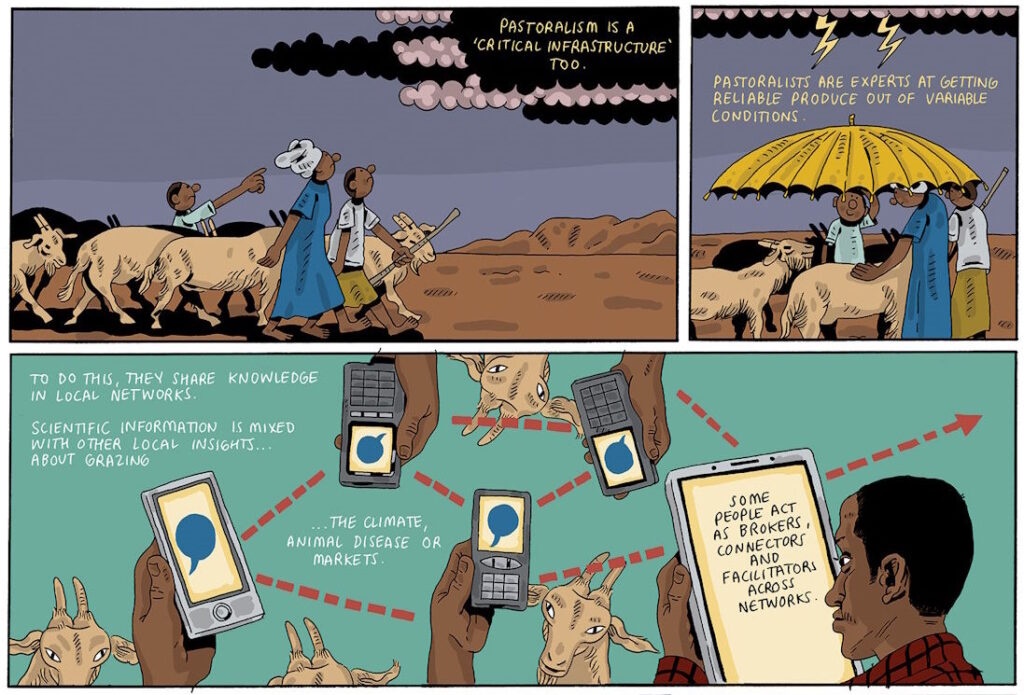
Major investments are required to help pastoralists adapt to climate change alongside other challenges. Unfortunately, such projects are too often poorly directed and may undermine adaptation responses. Instead, efforts need to be linked to pastoralists’ own resilience-building strategies and be rooted in the practices of local reliability professionals and their relationships and networks. PASTRES work, therefore, suggests a new approach to adaptation and resilience that is more attuned to pastoral practices and contexts.
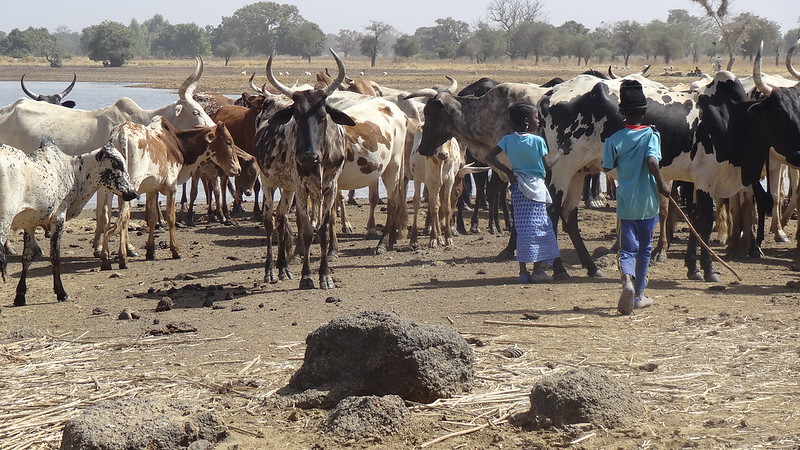
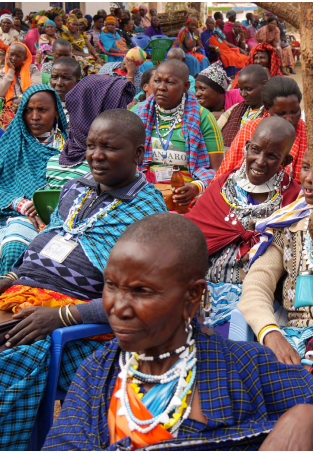
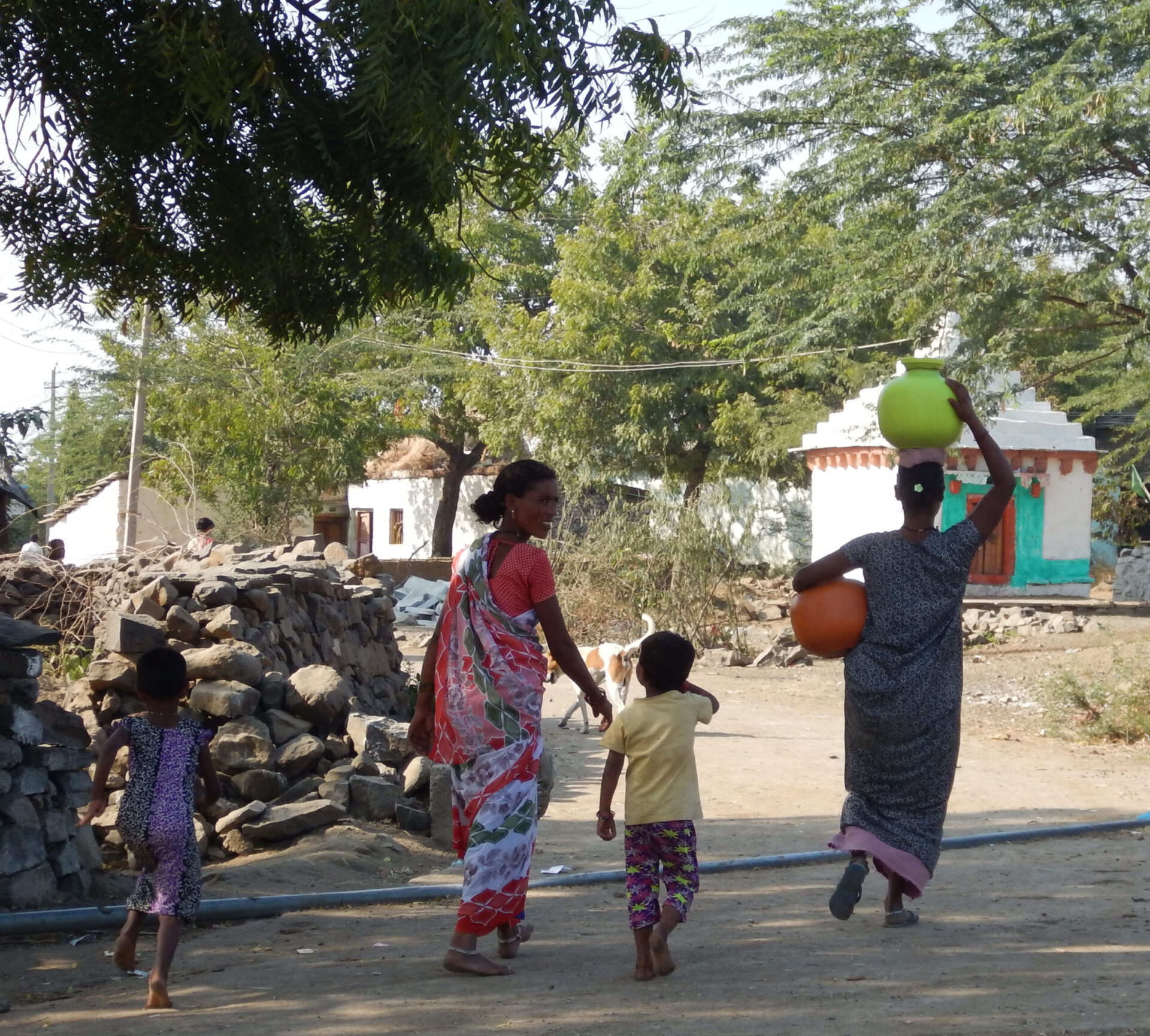
(0) Comments
There is no content